Experts: Tatarstan would be better off focusing on OIC countries rather than China
Business calls for support of domestic manufacturers and warns of the risks of a flood of goods from the PRC
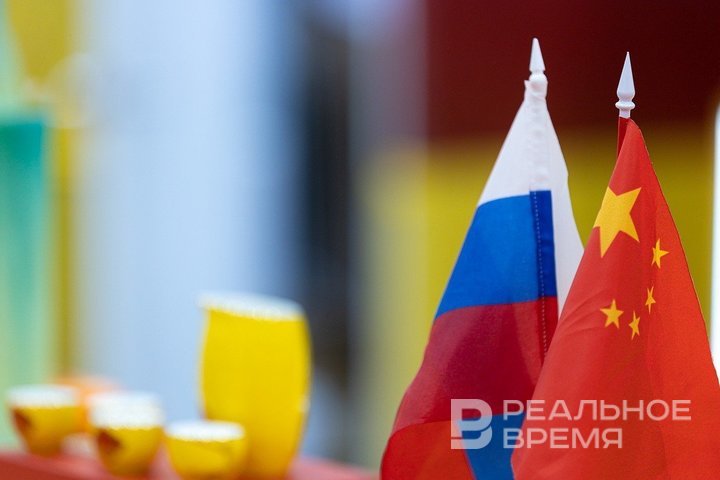
This week, the government of Tatarstan has signed seven cooperation agreements with leading Chinese provinces, with the parties reaching an understanding on the sidelines of the international industrial exhibition Innoprom in Yekaterinburg. The republic’s engagement with Chinese business is steadily increasing: in 2024, trade turnover amounted to $3.3 billion, with $1.05 billion worth of products sold to China. In the Zakamsk region, the Deng Xiaoping terminal has begun operations, aimed at optimising export logistics to China. At the same time, the Chinese manufacturer Midea relocated its production from Alabuga to Belarus, while a number of experts believe that the republic should focus not on China, but on Muslim countries.
The lion’s share of trade turnover is imports from China to Tatarstan
Today, Tatarstan is successfully cooperating with China: in 2024, trade turnover has grown by 9% to $3.3 billion, and the republic has increased its exports to the PRC by two-thirds compared to the previous year — to $1.05 billion. In the export portfolio, rubber and petroleum products each account for 43%, while plastic products make up 7.6%. In addition, large shipments of Tatarstan’s agricultural produce are being sent to China.
According to the Ministry of Agriculture and Food of Tatarstan, food products accounted for $41 million of exports to China in 2024. Leading the shipments are vegetable oils: sunflower oil — $18 million, rapeseed oil — $15 million, as well as chocolate and other food products containing cocoa — $3.4 million, sweet dry biscuits — $432,000, jams, jellies, marmalades, purées or pastes made from other fruits, berries and nuts that have undergone heat treatment — $221,000, and beet pulp, bagasse (sugarcane pulp) and other sugar production residues — $874,000.
However, in its relationship with China, the republic now far more often plays the role of buyer. The main share of trade turnover between Tatarstan and the PRC is made up of imports, which amount to $2.4 billion — four times the volume of exports. For Tatarstan, China is a supplier of machinery and technology. This situation is entirely expected: following the introduction of Western sanctions and the cessation of deliveries from countries deemed unfriendly, Russian enterprises have actively turned to China in search of alternative goods.
“China responded swiftly in the area of high-tech equipment supplies during the sanctions period, which allowed the economy to continue functioning without disruption. Today, Chinese construction firms are entering the development market as contractors. Chinese companies with global brands are opening new household electronics factories. Small and medium-sized businesses are also thriving — Chinese restaurants and cafés, for example. It is important to highlight the active role played in this entire process by the Chinese consulate in Tatarstan, established in 2016, and personally by Mr Xiang Bo, Consul General of China in Kazan,” said Taliya Minullina, head of the Tatarstan Investment Development Agency.
This year, the Centre for Facilitating Chinese Investment is planned to open in Kazan. Some projects have already been implemented, such as the Haier industrial park in Naberezhnye Chelny, which opened in 2016. It is the largest non-resource-based enterprise with foreign investment in Russia. Six factories have been launched, specialising in the production of household appliances, including refrigerators, washing machines, and televisions. However, one of them — Midea Group — has recently decided to relocate its production to Belarus. In total, around one hundred companies in the republic are owned by Chinese entrepreneurs.
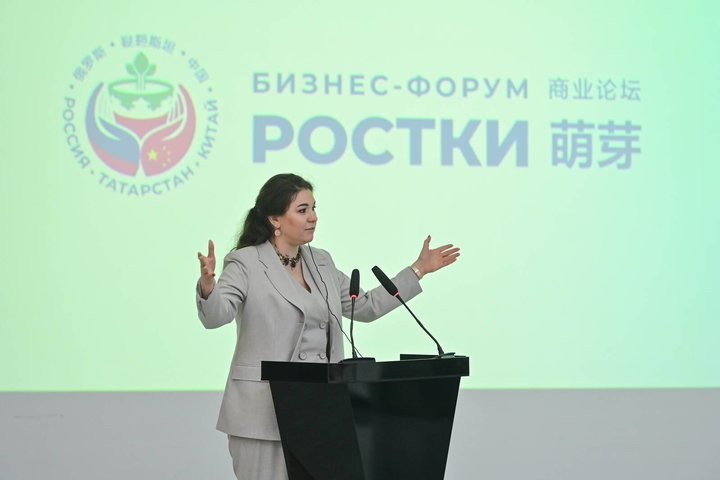
Is it difficult to export to China — but still possible?
Entrepreneurs in the republic point to the challenges of entering the Chinese export market: high standards, strict regulations, and a language barrier. The Chinese side is in no rush to sign contracts and takes a cautious approach to all matters. Nevertheless, Tatarstan’s businesses are showing persistence. For example, the company Avgust-Agro recently delivered a shipment of grain to the Chinese market. Undoubtedly, the path is not an easy one, but the effort is justified by the need to ensure the free movement of goods and to prevent stockpiles from accumulating in warehouses.
“We are actively working with Rosselkhoznadzor to develop a special programme — a ‘roadmap’ — that enables producers in Tatarstan to successfully obtain accreditation within China’s strict certification system. The PRC’s requirements are indeed very high, but already 16 enterprises in the republic have managed to overcome this barrier. Our task is to assist companies in preparing the necessary documentation, submitting it for review to the federal Rosselkhoznadzor, receiving feedback, and making the necessary corrections,” said Rustem Gaynullov, Deputy Minister of Agriculture and Food of the Republic of Tatarstan.
Furthermore, the Ministry of Agriculture and Food of the Republic of Tatarstan has high expectations for the Russian-Chinese forum ROSTKI, which will be held in Kazan on 18–19 August. Tatarstan’s agricultural producers will have the opportunity to meet with Chinese partners, discuss supply conditions, and thoroughly examine the sanitary and epidemiological requirements necessary for successful entry into the PRC market. In addition, a new major export agreement for grain supplies is planned, the specific details of which remain confidential for now.
Support for Tatarstan companies seeking to enter the Chinese market is also provided by the Russian Export Centre and the Tatarstan Export Support Centre.
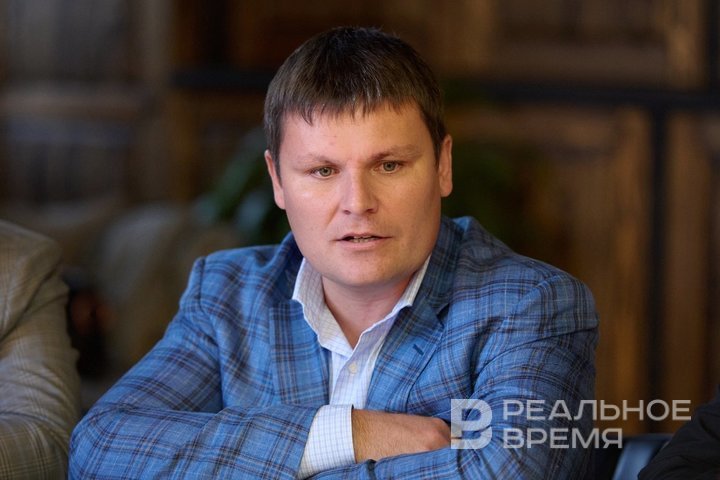
“Initially dependent on the West, now dependent on China”
In October 2024, the first export train departed for China from the Deng Xiaoping logistics centre in the Alabuga Special Economic Zone. A new Belt and Road terminal has been launched here. The 76-container rail convoy left for the PRC carrying products from the agro-industrial complex of the Republic of Tatarstan. The terminal is part of the country’s largest logistics complex, a project implemented with the participation of VTB Bank, with an investment of 51 billion roubles. Its capacity is 8,000 containers for simultaneous storage, and the site stretches 1.05 km in length. Thanks to its favourable location, the complex’s facilities can be utilised by large, medium, and small businesses alike.
Petrochemical and agricultural products are shipped to the PRC, while components for industrial enterprises and e-commerce goods return in the opposite direction. The container terminal will receive and dispatch at least one freight train to China weekly. The implementation of the project will enable the establishment of a circular container supply chain with China.
However, some experts have a mixed assessment of both the project itself and the overall expansion of trade cooperation with the PRC. Sergey Sotnikov, head of the Transport Committee of the Chamber of Commerce and Industry of the Republic of Tatarstan and director of the transport company Reverse, believes that the opening of the Deng Xiaoping logistics centre is primarily intended to facilitate the advancement of Chinese imports and raises doubts about its feasibility.

Regarding exports, the interviewee noted that Russia’s domestic market still has room to grow and develop. “We export polymers to China only to buy them back as finished goods, whereas we could establish full-cycle factories in the republic and produce consumer goods ourselves,” Sotnikov stated.
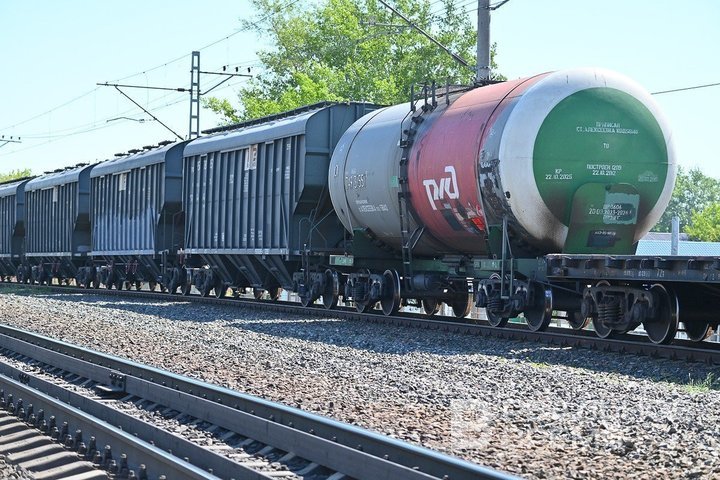
“Perhaps Tatarstan would be better off developing relations with OIC countries?”
According to the entrepreneur, the focus should shift from exporting raw materials to processing and producing finished goods within the country. It is important to avoid the risks of dependence on external markets and to prioritise the interests of the local population above all else. “If we recall how China’s economy developed, they purchased technologies and created their own industries. What prevents Tatarstan from buying technologies, investing in high-tech manufacturing, and developing domestic producers? We can do the same. Why do we attract foreign businesses? Foreigners will only think of their own profit, not Russia’s. What future do our young people have? If foreign business comes here, it will not allow domestic production to grow,” the businessman said.

According to the expert, the republic should actively develop other directions: “From a geopolitical perspective, Russia and China are, of course, allies, but there is no need to create additional preferences for them. They already enjoy numerous benefits due to geopolitics — for example, extremely favourable gas prices, which no other country besides China receives.”
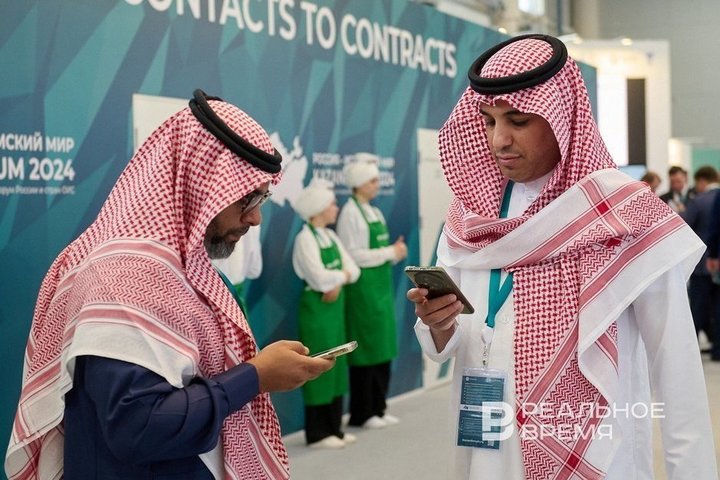
The Tatarstan Investment Development Agency (TIDA) reported that Kazan is expecting many guests on 18–19 August for the III International Forum ROSTKI: Russia and China — mutually beneficial cooperation. Among the main topics of the forum this year are:
- Technological sovereignty and manufacturing technologies.
- Infrastructure, construction, and logistics.
- Joint developments in microelectronics, AI and big data, cybersecurity.
- Financial stability and issues of settlement in national currencies.
Business sessions are planned across 10 key areas, covering interstate dialogue, industry, education, economy, finance, transport, tourism, culture, and cooperation between business associations. A special place in the programme is occupied by the International Russia China Expo — a large-scale exhibition spanning 15,000 square metres.
As is customary, the forum will feature a rich sports and cultural programme. Participants can look forward to a table tennis tournament, dragon boat races, and a golf tournament. Chinese guests favour tours of Lenin-related sites, while UNESCO sites in Tatarstan also attract particular interest: the Kazan Kremlin, Great Bolgar, the island town of Sviyazhsk, and the observatories of Kazan University.